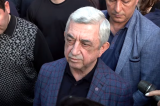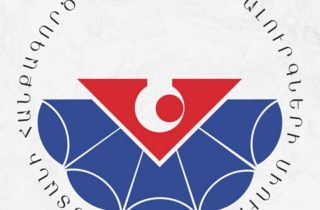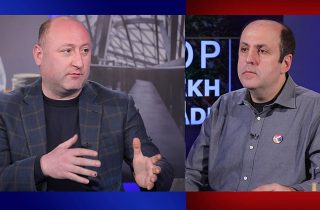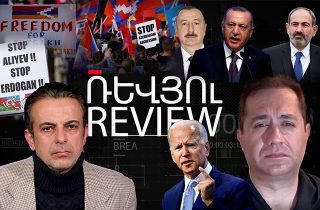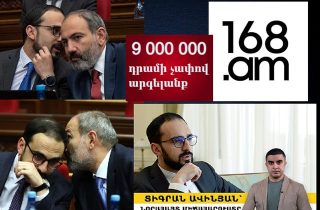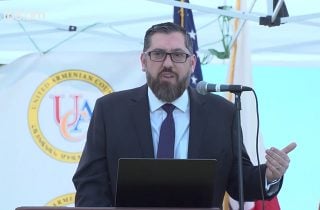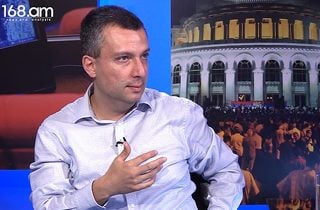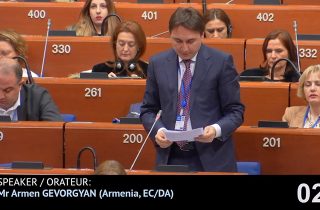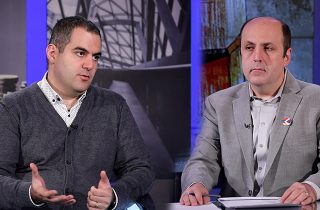European Court of Human Rights and the Recent Decision on the Case “Perinçek v. Switzerland”
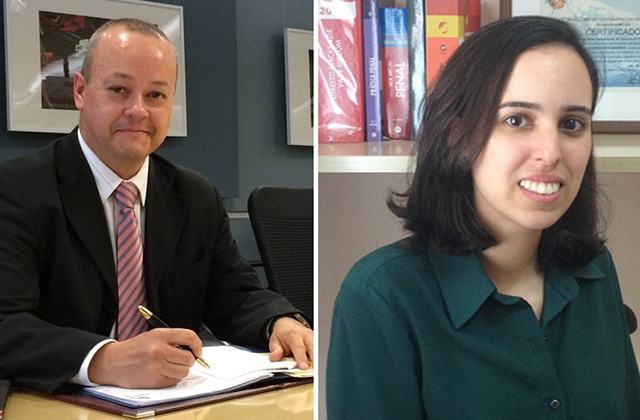
On October 15th, 2015, the Grand Chamber of the European Court of Human Rights judged the case Perinçek v. Switzerland (application no. 27510/08), holding, by a majority, that there had been a violation of Article 10 (freedom of expression) of the European Convention on Human Rights. The case concerned the criminal conviction of a Turkish politician, Mr. Doğu Perinçek, under article 261 bis § 4 of the Swiss Criminal Code, for some public statements made in 2005 expressing the view, in Switzerland, that the mass deportations and massacres suffered by the Armenians in the Ottoman Empire in 1915 and the following years had not amounted to genocide.
As an example of these statements, we cite the following:
Let me say to European public opinion from Bern and Lausanne: the allegations of the ‘Armenian genocide’ are an international lie. (…). (07/05/2005, Canton of Vaud)
The Kurdish problem and the Armenian problem were therefore, above all, not a problem and, above all, did not even exist … (22/07/2005, Canton of Zürich)
In this way, the Grand Chamber analyzed the possibility of justification of Mr. Perinçek’s criminal conviction under article 10, paragraph 2, of the Convention. The Court than decided that an interference with the right to freedom of expression must be made with regard to three requisites: it must have been “prescribed by law”, intended for one or more of the legitimate aims set out in that paragraph, and “necessary in a democratic society” to achieve that aim or aims.
Firstly, the Chamber decided that the interference with the applicant’s right to freedom of expression could be regarded as prescribed by law. Then, the Chamber accepted that this interference had been intended to protect the “rights of others”, but it found that the Swiss Government’s assertion that the applicant’s comments had in addition posed a serious risk to public order was not sufficiently substantiated.
Finally and most importantly, the Chamber found that the applicant’s statements had been of “a historical, legal and political nature” and relating to a debate of public interest. In addition, it found it problematic that the Swiss courts had relied on the notion of “general consensus” on the legal characterization of the events of 1915 and the following years to justify the applicant’s conviction. It went on to say that there was no indication that the applicant’s statements had been likely to stir up hatred or violence, and drew a distinction between them and statements denying the Holocaust on the basis that they did not carry the same implications and were not likely to have the same repercussions. In conclusion, the Chamber decided that his criminal conviction and sentence had not been “necessary in a democratic society” for the protection of the honor and feelings of the descendants of the victims of the Armenian genocide.
It is worth mentioning that the Court didn’t say that it occurred or what happened in the Ottoman Empire in 1915 against the Armenians was or was not a genocide. However, by saying that the Armenian genocide is not a “general consensus”, it gave force to the negationist discourse of the Turkish revisionists.
For many years, the main Turks’ tactics to deny the Armenian genocide has been the claims that systematic and large-scale atrocities did not occur, Turkey has no responsibility for the deaths that did occur, and the concept of genocide is not applicable to the events of l915 and the following years.
With this decision, the Court gave this three negationist claims used by the applicant in his discourse a mask of a “historical, legal and political” debate, instead of considering the Armenian genocide, as the dissenting judges suggested, “a clearly established historical fact” (page 121).
This ECHR decision shows the world that Turkey has been effective in posing doubt about the real nature of the Armenian massacres. We have to recognize that these massacres were neither a fatality in war times, nor the European imperialists’ or the victims’ fault. It is necessary to give these massacres the right name: genocide.
At least 15 European countries recognize the massacre of Armenian people as genocide. And, if the majority of the countries recognize the mass murder of the European Jews as an archetype of the genocide crime, around 13 European countries criminalize the Holocaust denial.
The ECHR decision does not prevent the EU members, under their national legal systems, to enforce laws against the denial of the Armenian genocide, but its recent decision favors a kind of incoherence: the freedom of speech must be preserved as a necessary column for the democracy and faces one of its exceptional limits on the hate speech. And, if the Holocaust denial is used, in some occasions, as a tool for the dissemination of anti-Semitic ideas, the denial of the Armenian genocide, in theory, can also serve as an instrument of disseminating hate against the Armenians.
By the occasion of the decision in the case of the French philosopher and writer Roger Garaudy, the same European Court of Human Rights had decided that:
There can be no doubt that denying the reality of clearly established historical facts, such as the Holocaust, as the applicant does in his book, does not constitute historical research akin to a quest for the truth. The aim and the result of that approach are completely different, the real purpose being to rehabilitate the National-Socialist regime and, as a consequence, accuse the victims themselves of falsifying history. Denying crimes against humanity is therefore one of the most serious forms of racial defamation of Jews and of incitement to hatred of them. The denial or rewriting of this type of historical fact undermines the values on which the fight against racism and anti-Semitism are based and constitutes a serious threat to public order. Such acts are incompatible with democracy and human rights because they infringe the rights of others. Their proponents indisputably have designs that fall into the category of aims prohibited by Article 17 of the Convention.
For the same reasons, the denial of the Armenian genocide is used as a tool of hate against the Armenian people as, for example, had happened in the location of Deir ez-Zor (considered the “Auschwitz” of the Armenian genocide), where the Islamic State destroyed the Armenian genocide memorial church of Deir ez-Zor in September, 2014.
This act is a way of denial and an attempt of rewriting clearly and established historical facts, as decided by the ECHR in the Garaudy case.
The previously organized and systematic destruction of the Armenian people by the Ottoman Empire from 1915, was – and must be recognized by its correct name – a genocide.
It must be noted that the decision of the ECHR is not about “if” the mass murder of the Armenians between 1915 and 1923 was – or not – a genocide; but, if its denial should be considered a crime, or not.
This debate occurred in France also, when the former President Nicolas Sarkozy signed a law punishing the Armenian genocide denial as a crime with the same legal consequence of the Holocaust denial, in that country: a year in prison and a fine of 45,000 Euros.
The Constitutional Council of France, the highest administrative instance of that country for constitutional issues, ruled the Armenian genocide denial ban as unconstitutional for violating the freedom of speech safeguards based on the Declaration of Human and Civic Rights (1789, Articles 10 and 11) and on the Constitution of October 4th, 1958.
Its decision stated that:
It is legitimate for the Parliament to institute indictments on abuse of the exercise of freedom of expression and communication that violate public order and the rights of others. However, the infringement of the exercise of this freedom — which is a prerequisite for democracy and a guarantee of respect for other rights and freedoms — must be necessary, appropriate and proportionate to the aim pursued…
But, also in France, the Holocaust denial is a crime, as well as in Austria, Belgium, Switzerland, Germany, Spain, Slovakia, Poland, Italy and Luxembourg.
In France, the rule prohibits the Holocaust denial is the Law nº 90-615 (Loi Gayssot) within its article 24b. And the Law nº 2003-88 of February, 2003 also punishes offenses against Jews and anti-Semitic and racist acts.
So, also in France we face some incoherence related to this hot topic.
We understand and agree with the necessity of the protection of freedom of speech, but not as a tool for the denial of clearly and consolidated historical facts.
The challenge now is to establish a smooth and fair legal understanding in reference to the known cases of genocide in human history, in order to face the hate speech and in memory of the victims.
Flávio de Leão Bastos Pereira*
Amanda Pilon Barsoumian**
*FLÁVIO DE LEÃO BASTOS PEREIRA.
Attorney at Law, Professor of Constitutional and Human Rights Law at Mackenzie University (São Paulo-Brazil), Master Degree in Political and Economics Law, Member of International Network Genocide Scholars – InoGS, Researcher at the Federal University of São Paulo (UNIFESP), at the Research Group Wars, Massacres and Genocides at the Contemporary Era. Researcher at the Research Group “Archeology of Repression” of the State University of Campinas (UNICAMP). Member of Inter-American Bar Association – IABA. [email protected]
**AMANDA PILON BARSOUMIAN.
Graduate student at Mackenzie Presbyterian University (Law School). Winner of the National Academic Essay Contest sponsored by the Brazilian Committee of the Armenian Genocide Centennial (2015).




